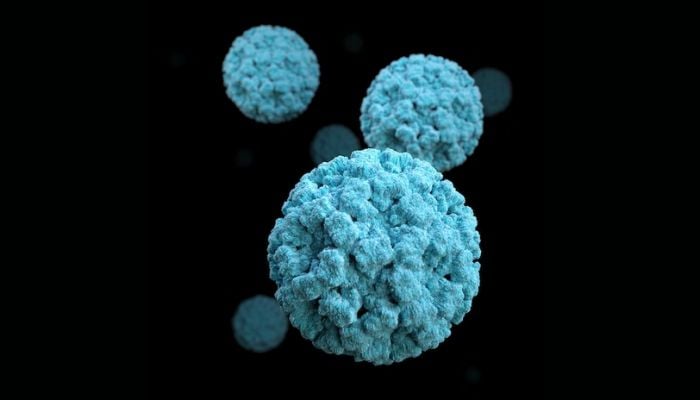Norovirus headache: What is it and how to prevent infection
Norovirus treatment, like the norovirus vaccine, is not known to us yet
March 04, 2023

Norovirus is a highly contagious virus that causes stomach inflammation, leading to symptoms such as vomiting, diarrhoea, and stomach cramps. It spreads easily from person to person through contaminated food or water, touching contaminated surfaces, or close contact with infected individuals. Norovirus in babies can be especially stressful and hard to fight.
One of the most well-known but not necessarily present symptoms people notice is the headache that follows infection.
Norovirus is responsible for many foodborne illnesses and is a common cause of outbreaks in schools, cruise ships, nursing homes, and other crowded settings.
Norovirus symptoms
Norovirus symptoms in adults can usually develop within 12 to 48 hours after exposure to the virus and can last from one to three days.
The most common symptoms are sudden onset of diarrhoea, stomach cramps, nausea, as well as fever. In some cases, people may also experience headaches, muscle aches, and fatigue. Needless to say, norovirus infection can be severe in people with weakened immune systems, young children, and older adults, leading to dehydration and other complications. Norovirus headache is a well-known symptom.
How do you get norovirus?
What is norovirus caused by? The infection spreads easily from person to person, like most contagious viruses, especially in crowded settings such as schools, nursing homes, hospitals, and cruise ships. It can also be transmitted through contaminated food or water or by touching contaminated surfaces and then touching your mouth, nose, or eyes. Norovirus is highly contagious, and even a small amount of the virus can lead to an infection. It can survive for a long time on surfaces and can withstand many common disinfectants, which makes it difficult to control.
Does hand sanitiser kill norovirus?
The best way to prevent norovirus infection is to practice good hygiene and sanitation measures. Wash your hands frequently with soap and water, especially before eating or preparing food, and after using the bathroom or changing diapers. Use alcohol-based hand sanitisers only when soap and water are not available. During the COVID-19 pandemic, a lot of awareness was raised around hand-washing techniques which can come in handy when caring for any other virus.
Avoid sharing food, drinks, utensils, or personal items with others. Clean and disinfect surfaces that may be contaminated with norovirus, including countertops, doorknobs, and bathroom fixtures.
Norovirus vaccine
According to the CDC, there is no vaccine available for norovirus. However, several experimental vaccines are under development, and clinical trials are going on. These vaccines work by stimulating the body's immune system to produce antibodies that can fight against norovirus infection. Norovirus treatment, like the vaccine, is not known to us yet. However, the CDC recommends staying hydrated to resolve the illness within a few days.
However, it is important to always consult a medical professional before taking any medical decisions and see a doctor as soon as you detect any symptoms.









